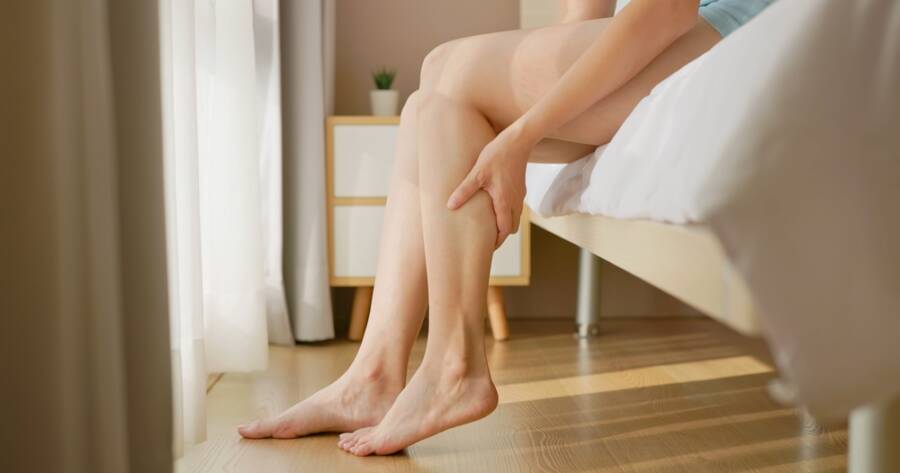Leg cramps are sudden, intense muscle contractions that can strike without warning, causing sharp pain and discomfort. Often occurring at night or during physical activity, they can affect anyone at any age. While usually harmless, frequent leg cramps can disrupt sleep and daily routines. Understanding the causes, symptoms, and potential treatments can help manage and prevent these painful episodes, improving overall comfort and mobility.
What Causes Leg Cramps?
Leg cramps are involuntary muscle contractions that can cause intense pain in the legs. They often occur at night and can disrupt sleep. While the exact cause of leg cramps is not fully understood, several factors are believed to contribute to their occurrence, including:
Nerve Compression
Compression of the nerves that supply the muscles in the legs can lead to leg cramps. This can occur due to various factors, such as sitting or standing for long periods, wearing tight clothing, or having a herniated disk.
Dehydration
Inadequate fluid intake can lead to dehydration, which can disrupt the balance of electrolytes in the body, including calcium, potassium, and magnesium. These electrolytes play a crucial role in muscle function, and their deficiency can increase the risk of leg cramps.
Muscle Fatigue
Overuse of the muscles in the legs, such as during intense exercise or prolonged standing, can lead to muscle fatigue and an increased risk of cramps.
Certain Medical Conditions
Leg cramps can also be associated with various medical conditions, including pregnancy, diabetes, thyroid disorders, and kidney disease. In these cases, leg cramps may be a symptom of an underlying health issue that requires medical attention.
Prevention and Treatment
Several strategies can be employed to prevent and treat leg cramps, including:
- Stretching: Regular stretching of the calf muscles and other muscles in the legs can help reduce the risk of leg cramps. Stretching before and after exercise is particularly beneficial.
- Hydration: Maintaining adequate hydration by drinking plenty of fluids throughout the day can help prevent dehydration and reduce the risk of leg cramps.
- Electrolyte balance: Consuming foods rich in electrolytes, such as bananas, oranges, and leafy greens, can help maintain electrolyte balance and reduce the risk of leg cramps.
- Avoiding triggers: Identifying and avoiding triggers that may contribute to leg cramps, such as sitting or standing for long periods, wearing tight clothing, or consuming excessive amounts of alcohol or caffeine, can help reduce their occurrence.
- Medical treatment: In cases where leg cramps are severe or persistent, medical treatment may be necessary. Treatment options may include medications, such as muscle relaxants or quinine, or physical therapy to address underlying muscle imbalances or nerve compression.
Home Remedies
In addition to the preventive measures and treatments mentioned above, several home remedies can provide relief from leg cramps:
- Massage: Gently massaging the affected muscle can help relax the muscle and relieve pain.
- Heat or cold therapy: Applying heat or cold packs to the affected area can help reduce pain and inflammation.
- Pickle juice: Drinking pickle juice has been anecdotally reported to relieve leg cramps. It is believed that the vinegar in pickle juice may help restore electrolyte balance and reduce muscle spasms.
- Rest: Getting adequate rest and avoiding excessive fatigue can help reduce the risk of leg cramps.
Understand The Condition Better
Leg cramps are a common condition that can affect individuals of all ages. While they are usually harmless, they can be painful and disruptive. By understanding the causes, prevention strategies, and treatment options, individuals can effectively manage leg cramps and improve their overall well-being. If you are experiencing frequent or severe leg cramps, it is advisable to consult a healthcare professional for proper diagnosis and management.

